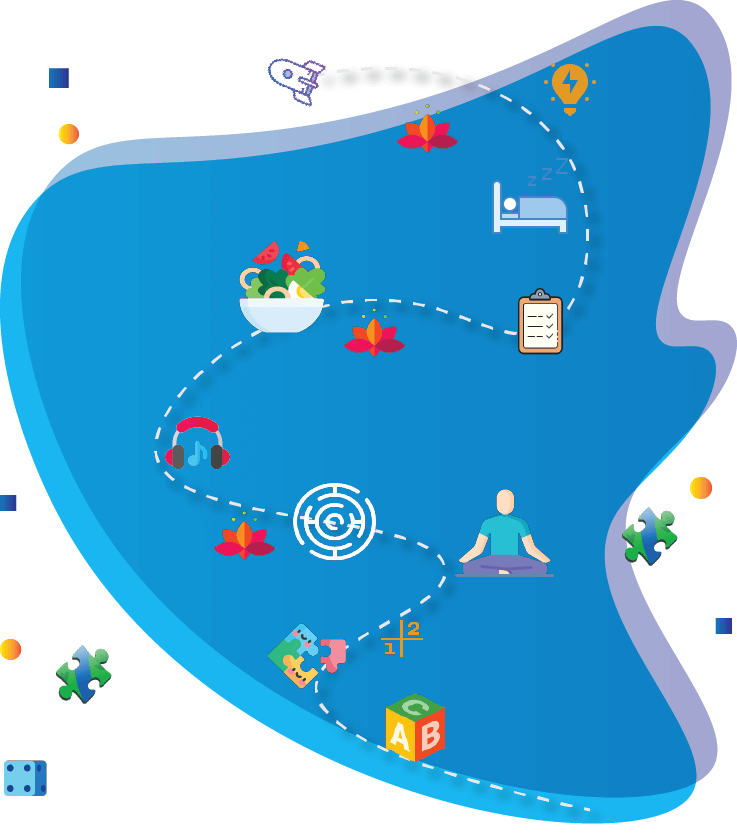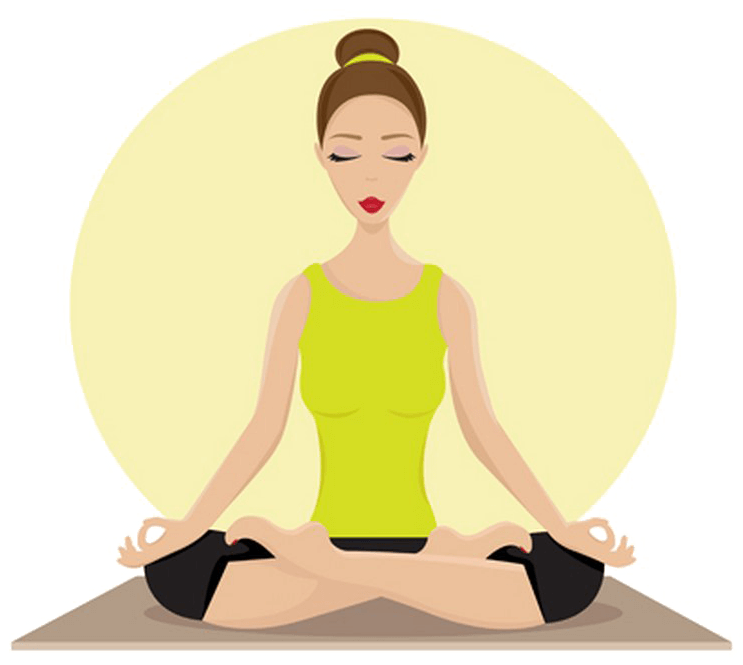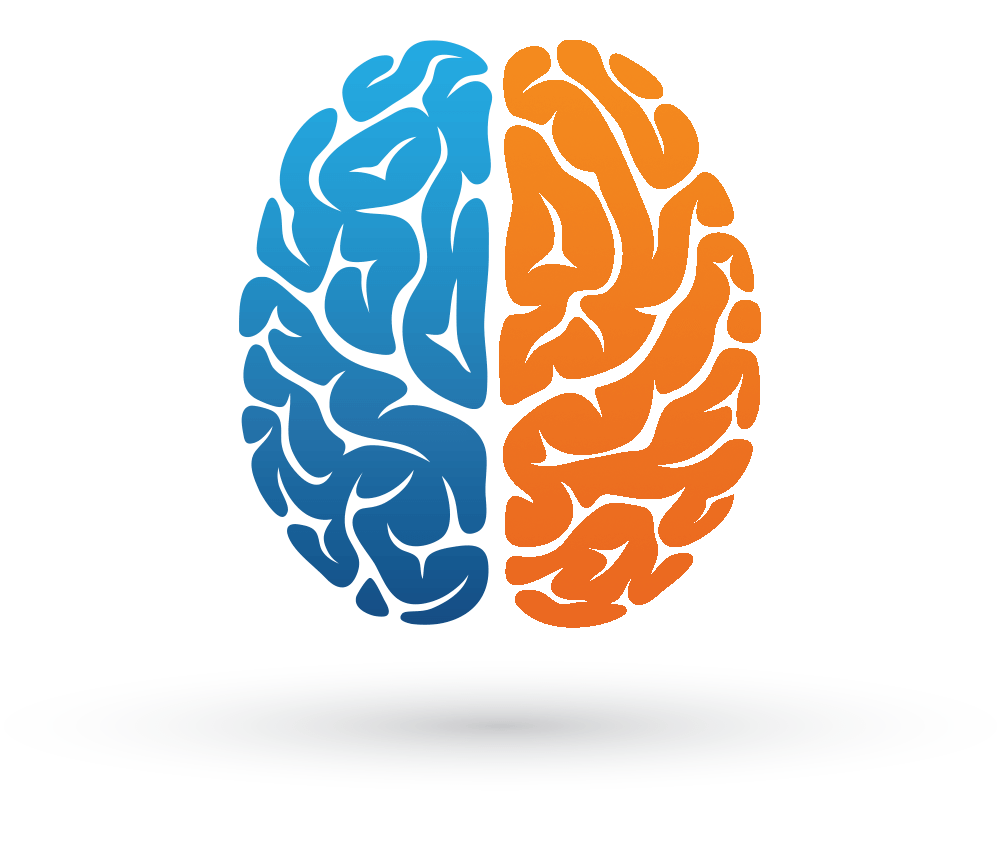Raagu's
ORMIQ
Train Your Brain Like a PRO

More About Our Raagu's ORMIQ
it is not a single program, it will change every 0.3 seconds based on your performance and it will omit or add levels, games, or challenges, that's why it is different from others, so every person has an entirely different ORMIQ challenge, ie, one person's pattern is not for others
Do you want to improve memory, increase IQ, increase creativity, want to do things in a smarter, intelligent, and creative way? It is all in the technique. It is a skill just like any other like riding a bike, driving a car, etc. All it requires is practice daily and you will be able to memorize anything. Learning will become fun.
Increase Your Working Memory
Working memory, in particular, is strongly correlated with intelligence in children and adults. When people perform better on a working memory task, they also tend to perform better on an intelligence task. ... More intelligent adults are thus more efficient problem solvers, because they have to summon up less energy.
The term working memory refers to the cognitive system that allows us to keep information available for processing.
Intelligence is therefore important for coping with a complex world. Its importance is also reflected in the concept of fluid intelligence – in contrast to crystallized intelligence –, which defines intelligence as a complex ability that allows us to adapt our thinking to a new cognitive problem or situation.
Improve Your Memory & IQ
Whether you want to be a Jeopardy! Champion or just need to remember where you parked your car, here are the things you can do right now to turn your mind from a sieve into a steel trap.
The two vital elements behind improving our brain are Neurogenesis and Neuroplasticity.Neurogenesis is about the creation of new brain cells. And Neuroplasticity about putting those new brain cells to a good use.
You see, depending on our life style choices, we see a huge variation in the rate of neurogenesis. We’re talking 3 to 5 times more new brain cells being created... or not. And again, depending on those life style choices, we will see 60 to 70% of these new brain cells die off... or not.
So basically, the quality of our life has a direct influence on the quality of our brain.
Some choices will boost the creation and wiring of brain cells, and other choices will drastically lower this same creation and wiring.
The place where it all starts is the hippocampus. It’s been known for a long time that the hippocampus is involved in forming new memories, and remembering them. Damage to the hippocampus will lead to cognitive deficits and memory problems. scientists have established this over and over again, with research into injuries and illnesses. Alzheimer for example, massively attacks the hippocampus, with the unfortunate results we know.
But the hippocampus does more than that. It is one of two places in the brain where we keep growing new brain cells during our entire life. Yes, our entire adult life. It doesn’t stop in our early twenties as previously thought. It just goes on, and on, and on ...
Now, for most people, the rate of neurogenesis decreases once they reach age 30 to 35. Sometimes, this decrease is so dramatic that by age 40 the first noticeable mental effects are already observable: We’re talking memory loss, cognitive impairment, anxiety and depression, loss of vitality, and so on.
But this is no fatality. Whatever our age, whatever the current state of our brain, This can change. Our brain can renew itself at any age. And depending on our lifestyle choices, we can increase that neurogenesis rate again.
And that’s exactly what we aim to do with this program.

Why Yoga & Meditation
Most people know that yoga can ease stress, but a new study suggests it can also improve your brain health — and practicing just once or twice a week can be enough to reap the benefits.
Yoga benefits the brain in ways that are similar to aerobic exercise, according to the study published in the journal Brain Plasticity, which has also been shown to improve cognitive performance, attention and memory.
For the study, researchers reviewed 11 studies that looked at the effects of practicing yoga on the brain. They found that yoga appears to have a positive effect on key areas areas “responsible for memory and information processing, as well as emotional regulation,”
We believe one of the key mechanisms could be that regular yoga practice impacts emotional regulation,” that is, it helps reduce stress, anxiety and other negative emotional responses, Other studies have shown that improving your mood is related to better brain health and functioning
Intelligence quotient IQ Test
An intelligence quotient (IQ) is a total score derived from a set of standardized tests or subtests designed to assess human intelligence. The abbreviation "IQ" was coined by the psychologist William Stern for the German term Intelligenzquotient, his term for a scoring method for intelligence tests at University of Breslau he advocated in a book.
Historically, IQ was a score obtained by dividing a person's mental age score, obtained by administering an intelligence test, by the person's chronological age, both expressed in terms of years and months. The resulting fraction (quotient) was multiplied by 100 to obtain the IQ score. For modern IQ tests, the raw score is transformed to a normal distribution with mean 100 and standard deviation 15.This results in approximately two-thirds of the population scoring between IQ 85 and IQ 115 and about 2.5 percent each above 130 and below 70.
Scores from intelligence tests are estimates of intelligence. Unlike, for example, distance and mass, a concrete measure of intelligence cannot be achieved given the abstract nature of the concept of "intelligence".

Understanding Sleep
Sleep is an important part of your daily routine—you spend about one-third of your time doing it. Quality sleep – and getting enough of it at the right times -- is as essential to survival as food and water. Without sleep you can’t form or maintain the pathways in your brain that let you learn and create new memories, and it’s harder to concentrate and respond quickly.
Sleep is important to a number of brain functions, including how nerve cells (neurons) communicate with each other. In fact, your brain and body stay remarkably active while you sleep. Recent findings suggest that sleep plays a housekeeping role that removes toxins in your brain that build up while you are awake.
Your need for sleep and your sleep patterns change as you age, but this varies significantly across individuals of the same age. There is no magic “number of sleep hours” that works for everybody of the same age. Babies initially sleep as much as 16 to 18 hours per day, which may boost growth and development (especially of the brain). School-age children and teens on average need about 9.5 hours of sleep per night. Most adults need 7-9 hours of sleep a night, but after age 60, nighttime sleep tends to be shorter, lighter, and interrupted by multiple awakenings. Elderly people are also more likely to take medications that interfere with sleep.
In general, people are getting less sleep than they need due to longer work hours and the availability of round-the-clock entertainment and other activities.
Many people feel they can "catch up" on missed sleep during the weekend but, depending on how sleep-deprived they are, sleeping longer on the weekends may not be adequate

Super Memory, is it possible ?
We believe memory and visualization to be the fundamental basis of the human creative lab, where ideas are sculpted from raw material into new gifts of the creator to the world.
This course aims to provide strategies, tools and a new method that will take whatever memorization skills you think you have to a whole other level, being the perfect start into this growing path of self-discovery and realization of your true potential.
A great memory and quick recall will improve many aspects of your daily life. Ultra Memory is for everyone; business professional, students, professional speakers, parents, children and more. Ultra Memory will teach you important techniques to improve your memory and give you specific examples to apply those techniques. A better memory can make you a more compelling speaker, a better student, it can help further life goals, help you succeed in careers and business and it can help you connect more with others around you.
- Data Interpretation
- Inequalities
- Percentages
- Number Series
- Arithmetic Aptitude
- Profit and Loss
- Simple Interest and Compound Interest
- Age Problems
- Work And Time
- Time & Speed
- Probability
- Mensuration
- Permutation and Combination
- Averages
- Ratios and Proportions
- Partnerships
- Stream Boat Problems
- Mixture and Alligation
- Pipes and Cisterns
- Coding and Decoding
- Important Problems
- Test Your Current Memory Power
- Understanding Human Brain & Memory Power
- How to Memorize 30 words in 3-minutes
- Power of Association
- Dimensions of Association & Creativity
- 3 Powerful Memory Techniques to memorize long list of words
- Memorizing Any Geographical fact: Country-Capital; State-Capital
- Memorizing new English words
- Memorizing foreign words
- Memorizing any technical, scientific words fast
- Memorizing Periodic Table
- Becoming a factory of facts
- Memorizing Speeches & Presentations
- Memorizing Numbers
- 3 Best Techniques to memorize short numbers
- Vedic number technique to memorize long numbers
- 30 digits in 3 minutes mastery
- Remembering dates
- Remembering Names & Faces
- Memorizing Correct Spellings
- Mnemonics
- Improving Observation Power
- Remembering misplaced things
- Best Foods & supplements for Memory Power
- How to Apply Memory Techniques in daily life
- FAQ about Memory Power
- Testing your Super Memory
- Substitute Words Strategies
- Goals
- To Do Lists
- Procedures
- States in Alphabetical Order
- Countries
- Homeostasis
- Game Controllers and Weather
- Formulas and Equations
- Anatomy
- Anatomy and Cars
- Presidents & Prime Ministers in Order
- Picking the Right Object
- Names and Faces
- Phonetic Pegs
- Jokes and Quotes
- Historical Dates
- Career guidance
- Completion of Series
- Relationship of Analogy Tests
- Relationship Test
- Jumbled Spelling Test
- Coding and Decoding Test
- Multiple Choice or Best Reason Test
- Same Class Test
- Synonym Test
- Antonym Test
- Direction Sense Test

Kids Learning
This program is perfect for children ages 3-6. By following along with Games, videos, coloring books,puzzles,Kid’s Behavior storybooks, and workbooks, step-by-step, your child will have the opportunity to learn and build essential skills that will last them a lifetime.
Nurturing a Child to Develop Both Intellectually and Psychosocially Well & Learns by Observation
Helping a Child to Make a High School Achievement & guide a child well to have success in schooling
The core psychological and pedagogical concepts that use to amplify a child's potential and whole Educational games and activities that can leverage to teach your child useful information
This whole course designed in a manner to make learning of all kinds fun & engaging for children
Alzheimer’s Prevention
Research proves that brain-stimulating activities and habits can help stave off Alzheimer’s. Not surprisingly, the brain can benefit from a good workout just as the body does.
Engaging in mentally stimulating activities such as reading, writing and playing games can improve brain health. Exercising your brain can help prevent beta-amyloid deposits from developing. These are the destructive proteins that have become the hallmark of Alzheimer’s disease.
Experts say that stimulating the brain can also stimulate the senses. Triggering sensory responses helps us stay engaged and pay attention. Yet another example of how activating the brain can help prevent Alzheimer’s disease.